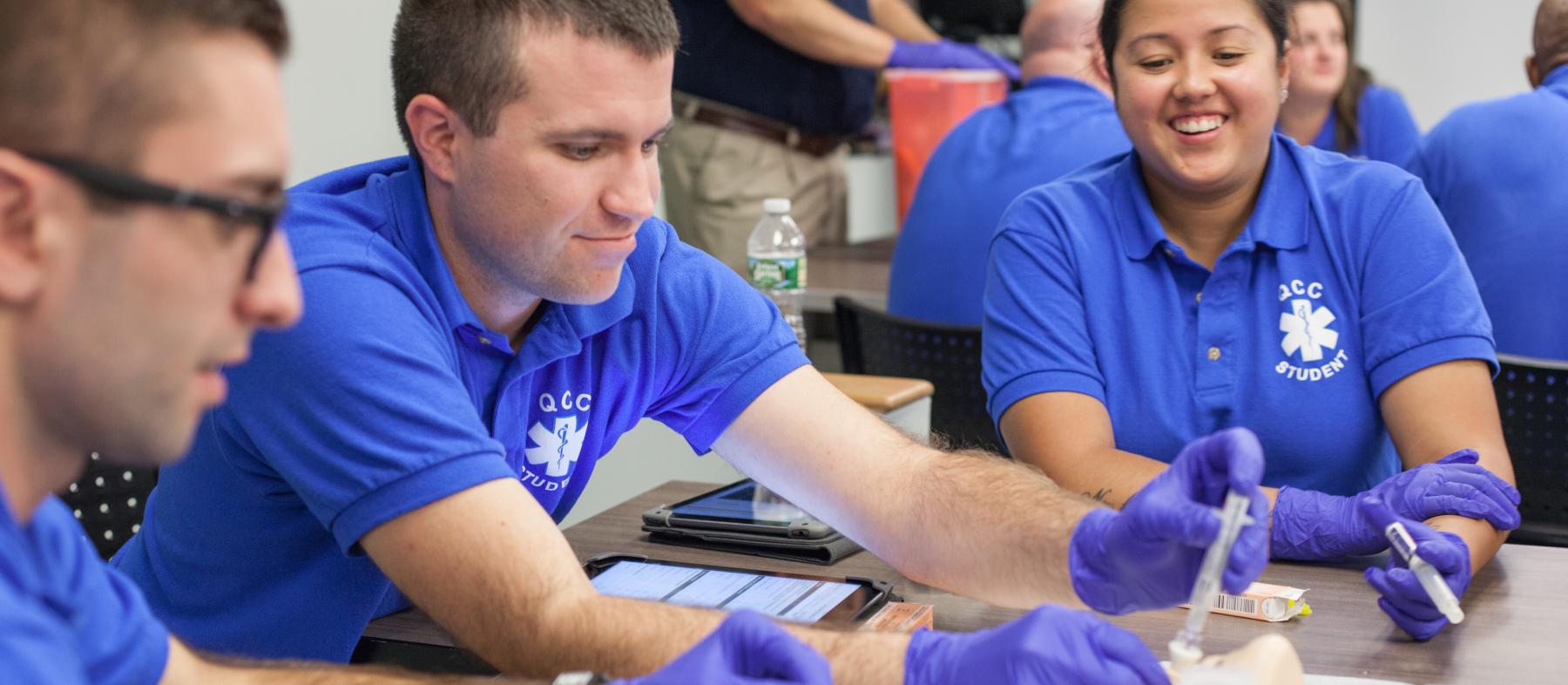Emergency Medical Technicians provide out of hospital emergency medical care and transportation for critical and emergent patients who access the emergency medical services (EMS) system. EMTs have the basic knowledge and skills necessary to stabilize and safely transport patients ranging from non-emergency and routine medical transports to life threatening emergencies. Emergency Medical Technicians function as part of a comprehensive EMS response system, under medical oversight. Emergency Medical Technicians perform interventions with the basic equipment typically found on an ambulance. Emergency Medical Technicians are a critical link between the scene of an emergency and the health care system.
Program Overview
What Will You Learn?
This program will teach you the basics of emergency medical care and life saving procedures for the sick and injured. It will also prepare you to be a competent member of an emergency team in the pre-hospital setting. Moreover, EMTs will learn to use an ever evolving and sophisticated set of equipment to provide basic life support for patients who are ill. EMTs can provide CPR, defibrillation, certain medication administration, bleeding control, childbirth procedures, splinting and bandaging, and many other interventions. As the entry point for all EMS careers, the EMT course provides the foundation you will need to be a successful EMS professional.
Cost
In-State Tuition: $223/credit
Out-of-State / International Tuition: $429/credit
Some programs have additional program fees
Timeline
23 credits
Learn Online
This program may be completed 50% or more online.
Requirements
High School Diploma or GED/HiSET.
Locations
This program may be completed at QCC at the Healthcare and Workforce Development Center in downtown Worcester.

